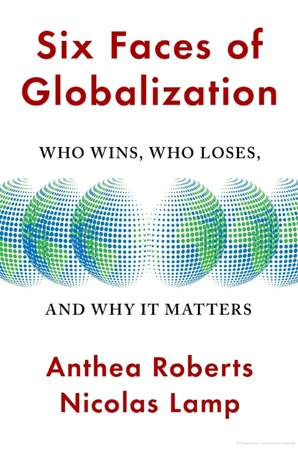Six Faces of Globalization – Who Wins, Who Loses, and Why It Matters

Blurb
An essential guide to the intractable public debates about the virtues and vices of economic globalisation, cutting through the complexity to reveal the fault lines that divide us and the points of agreement that might bring us together. Globalisation has lifted millions out of poverty. Globalisation is a weapon the rich use to exploit the poor. Globalisation builds bridges across national boundaries. Globalisation fuels the populism and great-power competition that is tearing the world apart. When it comes to the politics of free trade and open borders, the opposing sides are dug in, producing a kaleidoscope of claims and counterclaims, unlikely alliances, and unexpected foes. But what exactly are we fighting about? And how might we approach these issues more productively? Anthea Roberts and Nicolas Lamp cut through the confusion with an indispensable survey of the interests, logics, and ideologies driving these intractable debates, which lie at the heart of so much political dispute and decision making. The authors expertly guide us through six competing narratives about the virtues and vices of globalisation: the old establishment view that globalisation benefits everyone (win-win), the pessimistic belief that it threatens us all with pandemics and climate change (lose-lose), along with various rival accounts that focus on specific winners and losers, from China to America's rust belt. Instead of picking sides, Six Faces of Globalization gives all these positions their due, showing how each deploys sophisticated arguments and compelling evidence. Both globalisation's boosters and detractors will come away with their eyes opened. By isolating the fundamental value conflicts of growth versus sustainability, efficiency versus social stability and showing where rival narratives converge, Roberts and Lamp provide a holistic framework for understanding current debates. In doing so, they showcase a more integrative way of thinking about complex problems.
Book summary
Six Faces of Globalization: Who Wins, Who Loses, and Why It Matters, written by Anthea Roberts and Nicolas Lamp is an essential guide to the intractable public debates about the virtues and vices of economic globalization, cutting through the complexity to reveal the fault lines that divide us and the points of agreement that might bring us together.

